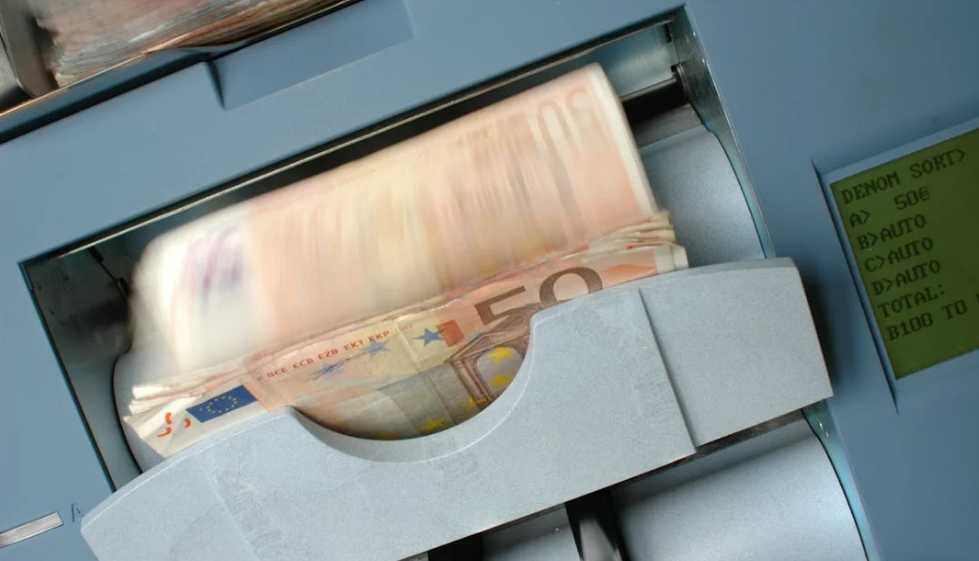- EasyCard
- Trade
- Help
- Announcement
- Academy
- SWIFT Code
- Iban Number
- Referral
- Customer Service
- Blog
- Creator
The Know - how, Operation Process and Fee List of Using Credit Cards for Western Union Remittance
Sending money via Western Union using a credit card is a convenient method chosen by many people. However, it is crucial to understand the relevant steps and fees before actually making the transaction. This article will help you clearly understand how to send money through Western Union with a credit card, the key information required, and the possible fees involved. If you need more flexible remittance options, you can also consider using BiyaPay, which we will introduce in detail later.

What Information is Needed for Remittance with a Credit Card?
When using Western Union to send money with a credit card, it is essential to ensure that the recipient can receive the funds smoothly. First of all, you need to provide the recipient’s full name and complete address. This information is very crucial because Western Union requires an accurate address to ensure that the funds are transferred to the recipient correctly.
In addition to the recipient’s basic information, you also need to confirm the remittance amount and the currency in which the recipient wishes to receive the remittance. Western Union supports multiple currencies, but it is advisable to confirm whether the remittance destination meets your needs before making the remittance. Knowing this information will help you complete the remittance transaction smoothly and avoid delays or problems caused by incorrect information.
Which Credit Cards are Supported by Western Union?
Western Union accepts a variety of credit cards, including mainstream credit cards such as Visa, MasterCard, and American Express. However, it is worth noting that not all credit cards support international transactions, and some credit cards may charge additional fees for cross-border payments. Therefore, before making a Western Union remittance, it is recommended that you confirm with your bank in advance whether your credit card supports international remittance and understand the possible fees.
In addition, when making an international remittance with some credit cards, it may be regarded as a cash advance transaction, resulting in higher interest rates and fees. Therefore, before remitting money with a credit card, it is best to understand the relevant terms of the credit card to avoid affecting your remittance cost due to high fees.
What are the Limits on the Remittance Amount of Western Union?
Western Union does not have a fixed upper limit on the remittance amount, but the actual remittance limit may be affected by various factors. Firstly, the laws and regulations of the destination country may impose restrictions on the remittance amount, so it is very important to understand the regulations of the remittance destination. Secondly, the limit of your credit card may also restrict the amount you can remit. Therefore, before making a large remittance, it is recommended to confirm whether the credit card can meet the remittance needs.
In addition, Western Union’s own policies may also have a certain impact on the amount. For example, the remittance limit in some countries may be lower, or Western Union will make corresponding adjustments according to the risk assessment of the transaction. Understanding these possible influencing factors can help you complete the remittance more smoothly.
What are the Fees for Remittance with a Credit Card?
Remitting money with a credit card usually incurs some additional fees. These fees typically include credit card handling fees, Western Union service fees, and possible exchange rate differences. The credit card company may charge a cash advance fee because the credit card company regards such transactions as cash advances. For the interest rate and related fees of the credit card, you need to consult the credit card provider in advance to avoid unnecessary fees.
The service fee of Western Union will vary depending on factors such as the remittance amount, destination, and payment method. Generally, the fee for paying with a credit card is higher. Therefore, it is recommended that you calculate all the fees before remitting and ensure that these fees are within your budget. If you think that the exchange rate of Western Union is not competitive, you can consider other remittance service providers to get a more favorable exchange rate.
How Long Does the Remittance Take?
When remitting money through Western Union with a credit card, the funds can usually be received within a few minutes. However, the specific arrival time may vary depending on the destination country and other factors. In some cases, especially for more remote areas or transactions with a large remittance amount, it may take a longer time to complete.
To ensure the smooth completion of the remittance, Western Union will provide a tracking number to help the remitter and the recipient check the remittance status at any time. Through the tracking number, you can keep track of the flow of funds at any time and ensure that the recipient can receive the funds on time.
Compared with other payment methods, the greatest advantage of remitting money with a credit card is its speed and convenience. Just pay with a credit card, and the remittance amount can be quickly transferred to the recipient’s account, which is very suitable for remittance transactions that need to be completed quickly. However, the main disadvantage of remitting money with a credit card is the higher fees, especially for international remittances, the credit card company may charge higher handling fees and interest rates.
In contrast, other payment methods such as bank transfers or third-party payment platforms may have lower fees, but they require more time and procedures. Therefore, the choice of which remittance method depends on your balance between time and cost requirements.
Conclusion
Overall, sending money through Western Union with a credit card is a fast and convenient remittance method, but its high handling fees and possible additional fees need to be fully understood and budgeted for before remitting. If you do not want to encounter unnecessary fees during the remittance process, you can consider using other remittance platforms, such as BiyaPay.
BiyaPay’s remittance service has multiple advantages, including unlimited remittance amounts, and its wide coverage includes most countries and regions. At the same time, BiyaPay adopts the most efficient and secure local remittance method, making remittance more convenient and guaranteed. If you are looking for more flexible remittance options, you might as well try BiyaPay.
*This article is provided for general information purposes and does not constitute legal, tax or other professional advice from BiyaPay or its subsidiaries and its affiliates, and it is not intended as a substitute for obtaining advice from a financial advisor or any other professional.
We make no representations, warranties or warranties, express or implied, as to the accuracy, completeness or timeliness of the contents of this publication.




Contact Us
Company and Team
BiyaPay Products
Customer Services
BIYA GLOBAL LLC is a licensed entity registered with the U.S. Securities and Exchange Commission (SEC No.: 802-127417); a certified member of the Financial Industry Regulatory Authority (FINRA) (Central Registration Depository CRD No.: 325027); regulated by the Financial Industry Regulatory Authority (FINRA) and the U.S. Securities and Exchange Commission (SEC).
BIYA GLOBAL LLC is registered with the Financial Crimes Enforcement Network (FinCEN), an agency under the U.S. Department of the Treasury, as a Money Services Business (MSB), with registration number 31000218637349, and regulated by the Financial Crimes Enforcement Network (FinCEN).
BIYA GLOBAL LIMITED is a registered Financial Service Provider (FSP) in New Zealand, with registration number FSP1007221, and is also a registered member of the Financial Services Complaints Limited (FSCL), an independent dispute resolution scheme in New Zealand.



















